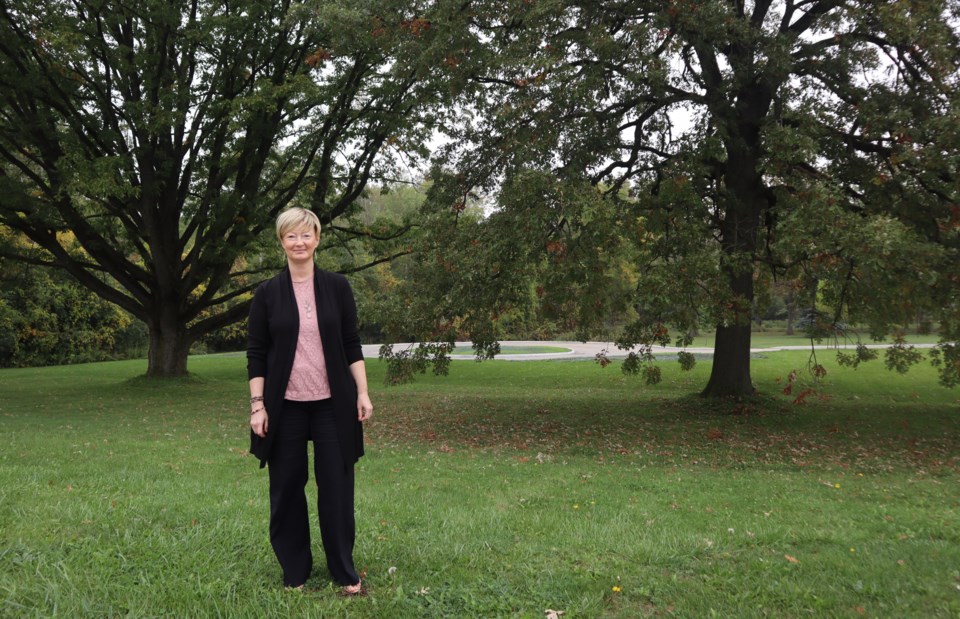Rising demand for greener and more affordable burial options has led the city to approve its first scattering garden for cremated remains in Parklawn Cemetery.
Although it's an option that's been available in other Waterloo region cemeteries for years, it’s the one thing Cambridge didn’t offer, says the city’s manager of operations for cemeteries Corina Burnell.
Council approved a bid from Kerr & Kerr Landscaping Inc. for the memorial garden project last month at a cost of $158,789.44
Work is expected to be completed next spring.
The motivation to bring the option to Parklawn was driven by demand from a growing number of residents who are choosing cremation for themselves or a loved one.
Space in the city's three active cemeteries isn’t a factor, Burnell says. It's not like Vancouver where a full burial plot can cost upwards of $50,000, she adds.
Cambridge can accommodate burials for the next 30 years.
But the push is on to offer more sustainable and affordable options.
Situated between two of Parklawn’s largest and oldest oak trees and next to a woodlot at the western edge of the cemetery, the memorial garden will feature a place for staff or family members to scatter cremated remains before they are covered with mulch.
The rest of the garden will feature stone dust walkways, planting beds, lawn areas, benches, and concrete pads with armour stone retaining walls.
The walkway that will be the main feature of the “little oasis at the back of the cemetery” will give visitors a chance to enjoy their surroundings as they meditate and remember their loved ones, Burnell says.
Across the province, about 70 per cent of families and individuals choose cremation over burial because it’s the most affordable option.
In Cambridge, however, that number drops to about 50 per cent, in part due to cultural norms still present in the various religious groups that make up the population.
Burnell says part of the reason demand for cremation is lower here is Catholic tradition. In recent years, however, the Vatican has relaxed its guidance around funerals and cremation.
Mini columbariums that will be offered in the memorial garden allowed the city to dip into a reserve fund for the memorial structures after the lowest bid for the garden came in more than $91,000 over budget.
Burnell says the mini columbariums have two niche spaces and sit only a few feet high, unlike the large columbariums which can house several dozen niches for remains.
“People call them condos,” Burnell says of the multi-niche walls.
The personal, two niche columbaria are like free-hold homes, she adds.
Planting a memorial tree over cremated remains is another option that will be offered in the new garden.
Individuals who own plots can already choose the green burial route if they want.
It’s the oldest form of human disposition and is done without embalming to allow for natural decomposition. The dead are wrapped in a shroud or placed in a biodegradable casket, free of any plastics, metals or liners.
“The idea is it’s joining in with the earth below,” Burnell says.
The City of Niagara Falls has taken the idea up a notch by becoming the first in the province to offer a 100 per cent natural burial, Burnell says.
The Willow’s Rest natural burial area is a two acre section of Fairview Cemetery where wildflower meadows and pollinator gardens surround the burial sites and memorial plaques aren’t anywhere to be seen.
It could be something the city considers down the road as Cambridge expands options for sustainable disposition, Burnell says.
“Bereavement is evolving.”



